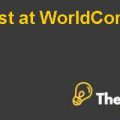
Nestle S.A: International Marketing Case Solution
Introduction
The paper attempts to discuss the objectives of the Nestle S.A Case while assessing the role of the headquarters of a multinational company in its marketing decision making. The paper further elaborates the perspectives of the headquarters in managing and developing a new product. Moreover, the environment and the internal forces of Nestle have also been discussed relating to the centralization and decentralization approaches in the company. The paper points out the role of the product director of Nestle and the role played by the center in addressing company’s issues. Lastly, the paper discusses the problems that arises at Nestle in relation to the introduction and development of the product and solutions are also provided to minimize those issues.
Objectives of the Case Addressing Nestle Case
Marketing program standardization
In many occasions, Nestle has stressed upon standardizing the brand and its features so that the consumer may recall from every part of the world. However, the localization strategy of the company allows developing brands and its features according to the tastes and preferences of end consumers. If a marketing program that has become popular in West Germany and has helped the company to sell millions of units in one year does not mean that the same formula can work in an emerging economy. The market trend and the nature of the end consumers allow a company to standardize its Program.
Headquarters’involvement in marketing decision making
The Headquarter of Nestle is involved in the marketing decision making only with the aspect of making policies worldwide and to set goals and allocate budgets. The country manager is involved in deciding the marketing strategies for long term growth. The Center could be coordinated and contacted if strategies of country organization does not respond well with respect to the market. The product directors are allocated by the Center for particular brand and product lines as they could be helpful in developing future investment plans for the country organizations.
Evaluation of decentralized multinational for implementingthe global marketing approach
Nestle has evaluated the preferences, needs, behaviors, interests, and tastes of their end consumers to decipher traits that can be found similar in particular markets. Therefore, the company enters those market with similar market plans and with similar marketing campaigns so that the global marketing approach shall be maintained without losing the decentralized approach. The final decision is taken with consensus from the country organizations and certain changes can also be performed to make it convenient for the target market. The company has maintained its brand name and its logo standardized as a part of global marketing approach which has resulted in great revenues.
Product management and new product development from the headquarters’ perspectives
The new product idea and concepts are generally received from the top management and it flows through the entire organization. When the idea is suggested by the Center, it is then transferred to the RECO department which conducts a complete research for its compatibility and its viability with certain markets. The idea flows from the Center to the Regional Managers, then to the product directors, and then flows through the country organizations. However, the policies of Nestle does not allow the lower managers to come up with any innovative ideas due to the chain of command structure....................
This is just a sample partial case solution. Please place the order on the website to order your own originally done case solution.













